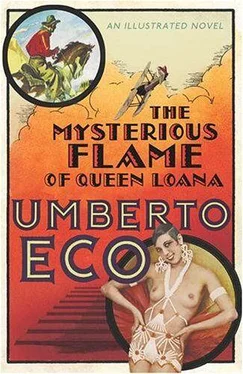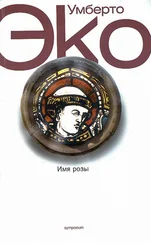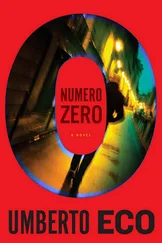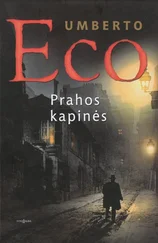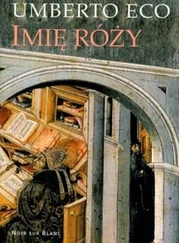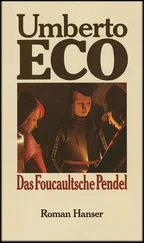Umberto Eco - The Mysterious Flame Of Queen Loana
Здесь есть возможность читать онлайн «Umberto Eco - The Mysterious Flame Of Queen Loana» весь текст электронной книги совершенно бесплатно (целиком полную версию без сокращений). В некоторых случаях можно слушать аудио, скачать через торрент в формате fb2 и присутствует краткое содержание. Жанр: Исторический детектив, на французском языке. Описание произведения, (предисловие) а так же отзывы посетителей доступны на портале библиотеки ЛибКат.
- Название:The Mysterious Flame Of Queen Loana
- Автор:
- Жанр:
- Год:неизвестен
- ISBN:нет данных
- Рейтинг книги:3 / 5. Голосов: 1
-
Избранное:Добавить в избранное
- Отзывы:
-
Ваша оценка:
- 60
- 1
- 2
- 3
- 4
- 5
The Mysterious Flame Of Queen Loana: краткое содержание, описание и аннотация
Предлагаем к чтению аннотацию, описание, краткое содержание или предисловие (зависит от того, что написал сам автор книги «The Mysterious Flame Of Queen Loana»). Если вы не нашли необходимую информацию о книге — напишите в комментариях, мы постараемся отыскать её.
The Mysterious Flame Of Queen Loana — читать онлайн бесплатно полную книгу (весь текст) целиком
Ниже представлен текст книги, разбитый по страницам. Система сохранения места последней прочитанной страницы, позволяет с удобством читать онлайн бесплатно книгу «The Mysterious Flame Of Queen Loana», без необходимости каждый раз заново искать на чём Вы остановились. Поставьте закладку, и сможете в любой момент перейти на страницу, на которой закончили чтение.
Интервал:
Закладка:
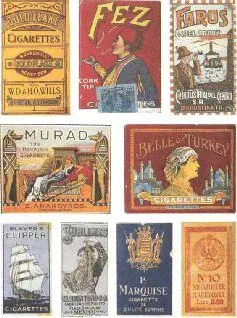
I recognized, too, the marvels of the next box, to which I was drawn by the reek of their cheap perfumes. You can still find them, though they are quite expensive now (I had seen some a few weeks earlier among the stalls at the Cordusio market): the wallet-sized cal-endarettes that barbers used to give out at year’s end, so unbearably perfumed that after more than fifty years they still retained a certain fragrance, a symphony of cocottes, of ladies clad in crinolines and little more, of beauties on swings and lost lovers, of exotic dancers and Egyptian queens… Women’s Hairstyles Through the Ages; Good Luck Ladies; The Italian Firmament, with Maria Denis and Vittorio de Sica; Her Majesty, Woman; Salomé; the Empire-Style Perfumed Almanac with Madame Sans-Gêne; Tout Paris; the Grand Savon Quinquine, an all-purpose soap that cleanses and disinfects, invaluable in hot climates, effective against scurvy, malarial fevers, dry ezema ( sic )-it bears Napoleon’s monogram, God knows why, and the first image shows the Emperor receiving news of the great soap’s invention from a Turk, and approving it. There was even a calendarette devoted to The Poet-Prophet Gabriele d’Annunzio-barbers had no shame.
I was nosing around hesitantly, as if I were an intruder in a forbidden kingdom. The barbers’ calendarettes might have seriously
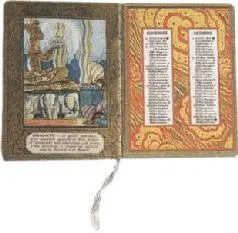
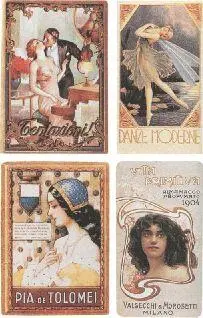
inflamed a boy’s imagination; perhaps they had been off-limits to me. Perhaps I could learn something in that attic about the formation of my sexual consciousness.
By now the sun was beating straight down on the skylights, yet I was not content. I had seen many things, but no object that had been truly and wholly mine. I wandered at random and was drawn toward a closed chest. I opened it, and it was full of toys.
Over the course of the preceding weeks I had seen my grand-kids’ toys: all of them colorful plastic, most electronic. When I gave Sandro a new motorboat, the first thing he said was not to throw the box away, since the battery must still be inside. The toys of my childhood were made of wood and metal. Sabers, cap guns, a little colonial helmet from the period of the Ethiopia conquest, an entire army of lead toy soldiers, and other, larger soldiers made of a sort of friable clay, some now with no heads, some with no arms, or rather with nothing but the jutting wire that once supported the painted clay arms. I must have spent day after day with those guns and those mutilated heroes, in the grip of warlike passions. It was a necessity of the times that boys be schooled in the cult of war.
Beneath all that were some of my sister’s dolls, which she must have been given by my mother, who had no doubt received them from my grandmother (toys in those days were passed down). Porcelain complexions, dainty pink mouths and fiery cheeks, little organdy dresses, eyes that still moved languidly. One, when I shook it, still said "mamma."
Foraging between one toy rifle and another I uncovered some curious soldiers: flat wooden cut-outs with red kepis, blue tunics, and long red trousers with yellow stripes, mounted on little wheels. Their faces were not martial, but rather grotesque, with potato-shaped noses. It occurred to me that one of them was Captain Potato of the Soldiers-of-Cockaigne Regiment. I was certain that was what they were called.
Finally I pulled out a tin frog, which, when I pressed its belly, still emitted the faintest croak croak. If she doesn’t want Dr. Osimo’s milk candies, I thought, she’ll want to see the frog. What did Dr. Osimo have to do with the frog? And whom did I want to see it? Pitch darkness. I would have to give it some thought.
After looking at the frog and touching it, I spontaneously said that Angelo Bear must die. Who was Angelo Bear? What was his relationship to the tin frog? I felt something thrumming; I was sure that both the frog and Angelo Bear connected me to someone, but in the aridity of my purely verbal memory, I had nothing else to go on. Except I murmured a rhyme: "The procession is set to begin, Captain Potato says when." Nothing more: I was back in the present, in the hazel silence of the attic.
On the second day, Matù paid me a visit. He immediately climbed onto my lap as I was eating, earning himself the rinds of my cheese. After the now standard-issue bottle of wine, I went about haphazardly until I saw, in front of a dormer window, two large, wobbly armoires that stood more or less upright, thanks to a few rudimentary wooden chocks slipped beneath them. I had some trouble opening the first, which continually threatened to collapse, and when it did open a shower of books fell at my feet. I was unable to stave off the landslide; it seemed that those owls, those bats that had been imprisoned for centuries, those bottled genies, had been awaiting nothing other than some imprudent man who would grant them their vengeful freedom.
Between the books that were piling up around my feet and those I was trying to grab to keep them from tumbling down, too, I had discovered an entire library-or, more likely, the inventory of the old shop that my grandfather had owned in the city and that my aunt and uncle had liquidated.
I could never have managed to see it all, but I was already dazed by recognitions that flared and were snuffed in an instant. Books in various languages, from various eras, some with titles that sparked no flames, because they belonged to the repertoire of the already known, like the many old editions of Russian novels, though even glancing at their pages I was struck by the muddled Italian, the work (according to the title page) of a lady with a double surname who had evidently translated the Russians from French, for the characters’ names all ended in ine , like Myskine and Rogozyne.
The pages of many of these volumes crumbled in my hands when I touched them, as if the paper, after decades of sepulchral darkness, could not bear the light of the sun. It certainly could not bear the touch of a finger and had been lying there for years waiting to be reduced to tiny shreds, shattering at the margins and corners into thin shavings.
Jack London’s Martin Eden caught my eye, and I turned mechanically to the last sentence, as if my fingers knew what they would find there. Martin Eden, at the height of his fame, kills himself by slipping out through the porthole of his steamer cabin into the Pacific, and as he feels the water slowly filling his lungs, he gains, in a final glimmer of lucidity, some understanding, maybe of the meaning of life, but "at the instant he knew, he ceased to know."
Should one really demand a final revelation, if as soon as one has it one sinks into darkness? That rediscovery cast something of a pall over what I was doing. Perhaps I should have stopped there, seeing that fate had already granted me oblivion. But I had begun and could not help but keep going.
I spent the day skimming this and that, at times discovering that some great masterpiece that I thought had been absorbed by my public, adult memory, had probably come to my attention for the first time in the abridged Golden Stairway children’s editions. The lyrical verses of The Basket , poems for children by Angiolo Silvio Novaro, sounded familiar to me: What does the March rain say / when it sprinkles its silvery way / down from the eaves / to clatter against the parched leaves / of the holly? Or: When the springtime comes a-dancing , / comes a-dancing to your door , / what do you think it has in store? / Little wreaths of butterflies , / little bells of morning glory … Did I know back then what morning glory was, or holly? Right after that my eyes lit upon the covers of the Fantômas stories- The Hanged Man of London , The Red Wasp , The Hempen Necktie -with their dark episodes involving chases through Parisian sewers, girls emerging from crypts, dismembered
Читать дальшеИнтервал:
Закладка:
Похожие книги на «The Mysterious Flame Of Queen Loana»
Представляем Вашему вниманию похожие книги на «The Mysterious Flame Of Queen Loana» списком для выбора. Мы отобрали схожую по названию и смыслу литературу в надежде предоставить читателям больше вариантов отыскать новые, интересные, ещё непрочитанные произведения.
Обсуждение, отзывы о книге «The Mysterious Flame Of Queen Loana» и просто собственные мнения читателей. Оставьте ваши комментарии, напишите, что Вы думаете о произведении, его смысле или главных героях. Укажите что конкретно понравилось, а что нет, и почему Вы так считаете.
